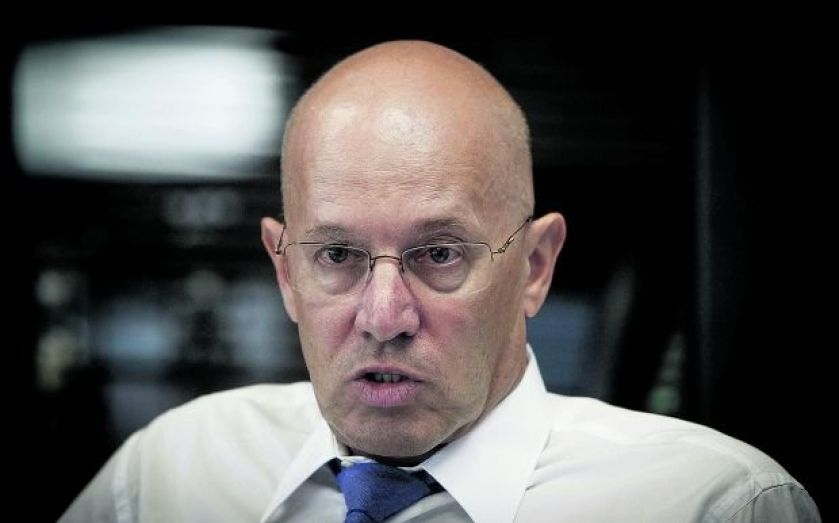| Updated:
Banco Espirito Santo on red alert as banking crisis hits new depths

Espirito Santo Financial Group’s (ESFG) debt crisis deepened yesterday, raising questions over whether Rioforte, one of its companies, would be able to repay over $1bn (£580m) in debt to Portugal Telecom.
The share price of Banco Espirito Santo (BES), Portugal’s top lender backed by ESFG, closed at just €0.38 (£0.30), down around 70 per cent from a recent high in April.
Rioforte, which holds a 49 per cent stake in Espirito Santo, was preparing to file for creditor protection in Luxembourg ahead of today’s deadline to repay Portugal Telecom, according to sources cited by Reuters.
The filing is aimed at preventing bankruptcy that would lead to a fire-sale of assets.
“The major risk is the fact that BES has exposure to Rioforte and its parent company,” Sam Theodore, managing director of financial institutions at Scope Ratings, told City A.M.
“The loss on that exposure could have some sort of capital impact on the bank.”
Portugal’s stock and bond markets were thrust into turmoil last week, after it emerged that BES’ parent company might be unable to repay its debt.
Under pressure from the country’s central bank, BES rushed through management changes on Monday that were set to happen at the end of the month, including the appointment of economist Vitor Bento as chief executive.
Rioforte owes €897m to the country’s largest telecom services provider, Portugal Telecom (PT), which is in the midst of a tie-up with Brazil’s Grupo Oi. PT’s outstanding bonds are separately guaranteed by Brazil’s Oi as part of their planned merger.
Rioforte was unavailable for comment.
Shares in the bank closed at €0.38 yesterday.
CRISIS TIMELINE
15 MAY
Banco Espirito Santo announces €1bn rights issue at a 38.7 per cent discount (see box right)
20 MAY
Reveals an external audit found the family owned conglomerate controlling the bank is in a “serious financial condition” after finding “irregularities”.
27 MAY
Top shareholders Credit Agricole and Espirito Santo Financial Group (ESFG)– the bank’s holding company – announce they will not take up rights up.
30 JUNE
Bank holds a conference call to reassure investors after a probe is launched into ESFG. ESFG shares plummet 11 per cent and the bank’s shares fall 13 per cent.
1 JULY
Short selling in ESFG and the bank is banned by regulators to try to stop price slide.
5 JULY
ESFG propose economist and former Bank of Portugal director Vitor Bento as chief executive.
10 JULY
ESFG asks for its shares to be suspended. The bank’s shares are also suspended after tanking 19 per cent during morning trading. Bank says has €2.1bn capital cushion.
14 JULY
ESFG announces it has sold five per cent of its holding in the bank to help repay funds, sending shares down again to their lowest level in nearly two years.
THE €1BN RIGHTS ISSUE
■ Banco Espirito Santo appointed UBS and Morgan Stanley to help raise €1.01bn by selling shares at €0.65 each
■ The bank said it wanted to raise the capital to meet capital buffers under CRD IV and to pass upcoming stress tests.
■ The prospectus lists 25 pages of risks to the business and discloses its parent is in a “serious financial condition”.
■ Shares closed yesterday down 40 per cent from the issue price, leaving investors in the issue nursing heavy losses
PROFILE: THE HOUSE OF ESPIRITO SANTO
Behind the modern financial wizardry of the current Banco Espirito Santo lies a rich tapestry of family ownership which has endured for over 140 years – but now appears on the verge of extinction.
The bank, which means Holy Spirit in English, traces its root back to the middle of the nineteenth and a trader called Jose Maria do Espirito Santo Silva who founded a small foreign exchange bureau in Lisbon in 1869.
Silva died in 1915 and his interests were subsequently merged together into Banco Espirito in November 1920. His son Jose Ribeiro do Espirito Santo e Silva became chairman of the new entity and remained in post until 1932 followed by his son Ricardo Espirito Santo Silva Ribeiro.
He presided over the company following its 1937 merger with its rival Banco Comercial de Lisboa.
His brother Manuel Ribeiro Espirito Santo Silva then took the helm after Ricardo’s death in 1955, and subsequently anointed his son Manuel Ricardo Espirito Santo e Silva as chairman in 1973. He gave way to chief executive Ricardo Espirito Santo Silva Salgado, who was replaced by outsider Vitor Bento this month.